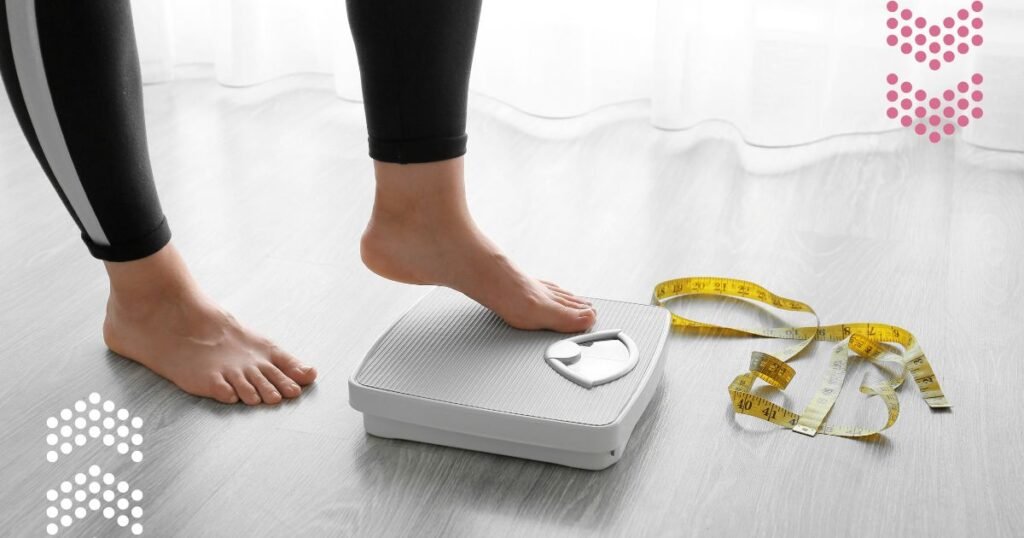Understanding Polycystic Ovary Syndrome (PCOS) in Women: Weight Management and Holistic Health
Polycystic Ovary Syndrome (PCOS) is a complex hormonal disorder affecting a significant percentage of women worldwide. It impacts not only reproductive health but also has profound effects on weight, metabolism, and overall well-being. For women with PCOS, managing these challenges can feel overwhelming. Tailored solutions are essential, as traditional weight loss methods often fall short. This article dives into the weight management and holistic health strategies that women with PCOS can adopt to regain control of their health and lead a more balanced life.
Challenges and Solutions for Women with PCOS
Women with PCOS face a unique set of challenges that make weight management difficult. These include insulin resistance, hormonal imbalances, and metabolic changes that lead to weight gain and difficulty losing weight. Many women with PCOS also struggle with irregular periods, acne, and excess hair growth due to elevated androgen levels. Tackling these symptoms requires a multifaceted approach.
Solutions for these challenges start with understanding the underlying hormonal issues. Women need a combination of diet, exercise, medication, and sometimes supplements to address the root causes of PCOS. Addressing weight loss, in particular, demands a plan that focuses on long-term changes, including improved insulin sensitivity and hormonal balance. For an in-depth exploration of challenges and solutions for women with PCOS, read more on our blog.
How PCOS Leads to Insulin Resistance and Weight Gain in Women
One of the most significant factors in PCOS-related weight gain is insulin resistance. Insulin is a hormone that helps regulate blood sugar levels. In women with PCOS, the body becomes less responsive to insulin, causing the pancreas to produce more insulin. Elevated insulin levels lead to an increase in fat storage, especially around the abdomen.
This insulin resistance not only makes it harder to lose weight but also contributes to other metabolic problems, such as type 2 diabetes. For women with PCOS, controlling blood sugar levels and improving insulin sensitivity is crucial for successful weight management. Strategies that improve insulin sensitivity, such as following a low-carb or low-glycemic diet, combined with exercise, are essential. You can explore more about how PCOS leads to insulin resistance and weight gain in women in this comprehensive guide.
The Role of Insulin in Fat Storage
Insulin acts as a fat-storage hormone. When levels are high, it signals the body to store fat, particularly in the abdominal area. Women with PCOS often have higher-than-normal insulin levels, leading to increased fat storage even when calorie intake is controlled. Improving insulin sensitivity through diet and exercise can help reverse this process, making it easier to shed excess weight.
The Role of Elevated Androgens in Fat Gain and Muscle Loss for Women with PCOS
Another challenge for women with PCOS is elevated androgen levels, or male hormones like testosterone. Androgens are responsible for many of the symptoms of PCOS, including weight gain, excess hair growth, and acne. High androgen levels also lead to fat accumulation, particularly in the midsection, while simultaneously causing muscle loss.
Muscle is metabolically active tissue, meaning it burns more calories at rest than fat. Losing muscle mass slows down the metabolism, making it even harder to lose weight. This cycle of elevated androgens, fat gain, and muscle loss is one of the reasons why traditional weight loss methods don’t always work for women with PCOS. Read more about the role of elevated androgens in fat gain and muscle loss for women with PCOS.
Why Conventional Diets Often Don’t Work for Women with PCOS
Many women with PCOS find that conventional low-calorie diets don’t work for them. This is because these diets fail to address the underlying hormonal imbalances, such as insulin resistance and elevated androgens. Reducing calories alone doesn’t fix the metabolic issues at the heart of PCOS. In fact, strict calorie reduction can sometimes exacerbate hormonal imbalances, leading to increased hunger and fatigue, making it harder to stick to a diet.
Instead, women with PCOS need a diet plan that addresses these hormonal imbalances. This often includes eating a diet rich in whole foods, healthy fats, lean proteins, and low-glycemic carbohydrates. Understanding why conventional diets don’t work for women with PCOS is key to finding a sustainable weight loss solution.
Best Diet Strategies for Women with PCOS (Low GI, Anti-Inflammatory, Low Carb)
Given the complexity of PCOS, diet strategies should focus on stabilizing blood sugar, reducing inflammation, and supporting hormonal balance. Three dietary approaches are particularly effective for women with PCOS: low glycemic index (GI), anti-inflammatory, and low-carb diets.
Low GI Diet
A low glycemic index diet focuses on foods that have a minimal impact on blood sugar levels. These include non-starchy vegetables, whole grains, and legumes. By avoiding foods that cause rapid blood sugar spikes, women with PCOS can improve insulin sensitivity and reduce fat storage.
Anti-Inflammatory Diet
PCOS is often accompanied by chronic inflammation, which exacerbates symptoms. Anti-inflammatory foods, such as leafy greens, berries, fatty fish, and turmeric, help reduce inflammation in the body. Incorporating these foods into your diet can improve metabolic function and make weight loss easier. Learn more about best diet strategies for women with PCOS.
Low-Carb Diet
Low-carb diets are highly effective for women with PCOS, as they help control blood sugar and insulin levels. Carbohydrates are broken down into glucose, which triggers the release of insulin. By reducing carb intake, women with PCOS can reduce insulin spikes and promote fat loss.
The Importance of Strength Training to Counter Muscle Loss in Women with PCOS
Strength training is one of the best ways to counter the muscle loss that occurs due to elevated androgen levels in women with PCOS. Building muscle not only improves body composition but also boosts metabolism, making it easier to lose fat.
Strength Training Tips
Incorporating strength training into a regular workout routine is essential for maintaining muscle mass. Women with PCOS should focus on compound movements, such as squats, deadlifts, and push-ups, which work multiple muscle groups at once. Adding resistance training two to three times per week can help counteract muscle loss and improve metabolic health. More insights on the importance of strength training can be found here.
The Role of Supplements in Managing PCOS Symptoms (Inositol, Omega-3s)
Supplements can be an effective addition to diet and exercise for managing PCOS symptoms. Inositol, for example, has been shown to improve insulin sensitivity, making it easier for women with PCOS to lose weight. Omega-3 fatty acids, found in fish oil, have anti-inflammatory properties that can help reduce the inflammation associated with PCOS.
Other supplements, such as Vitamin D and magnesium, may also be beneficial for women with PCOS. Always consult a healthcare provider before starting any new supplement regimen, but adding targeted nutrients can complement lifestyle changes and improve symptom management.
How Women Can Manage PCOS with Hormonal Birth Control and Metformin
Hormonal birth control is often prescribed to women with PCOS to regulate their menstrual cycles and reduce symptoms such as acne and excess hair growth. Birth control pills lower androgen levels, which can help mitigate some of the weight gain and other hormonal symptoms of PCOS.
Metformin, a medication commonly used to treat type 2 diabetes, is another option for managing PCOS symptoms. It improves insulin sensitivity and can help women with PCOS lose weight. However, it does have side effects, such as gastrointestinal issues, and should only be used under the guidance of a healthcare provider.
The Psychological Impact of PCOS on Body Image and Motivation for Weight Loss in Women
PCOS can take a toll on a woman’s mental health. The physical symptoms of PCOS, such as weight gain, acne, and excess hair growth, can lead to body image issues and low self-esteem. Many women with PCOS struggle with motivation for weight loss due to these emotional barriers.
Boosting Mental Well-being
Maintaining mental health is crucial when managing PCOS. Support groups, therapy, and focusing on non-scale victories, such as improved strength or energy levels, can help women stay motivated. Mental health strategies should be a part of any PCOS management plan, as the emotional impact of the disorder is just as significant as the physical symptoms. More on the psychological impact of PCOS can be found here.
Anti-Inflammatory Foods to Reduce PCOS-Related Inflammation in Women
Inflammation is a key component of PCOS, and reducing it can help alleviate many symptoms. Anti-inflammatory foods include fatty fish, such as salmon, leafy greens, berries, and spices like turmeric. These foods not only reduce inflammation but also provide essential nutrients that support overall health.
Meal Ideas
Creating meals that incorporate these anti-inflammatory foods is easy. For example, a salad made with spinach, avocado, grilled salmon, and a turmeric-based dressing can be a nutrient-rich, anti-inflammatory meal. These types of meals are ideal for women looking to manage their PCOS symptoms through diet. Find out more about anti-inflammatory foods for PCOS here.
The Impact of Sleep, Stress, and Exercise on PCOS Weight Management for Women
Managing sleep and stress levels is crucial for women with PCOS. High stress can lead to elevated cortisol levels, which promote fat storage, especially in the abdominal area. Poor sleep can also exacerbate insulin resistance, making it harder to lose weight.
Tips for Better Sleep and Stress Management
Improving sleep quality through good sleep hygiene, such as maintaining a regular sleep schedule and avoiding electronics before bed, can help balance hormones. Managing stress through mindfulness techniques, such as meditation or yoga, can also support weight management. Exercise is another powerful tool, not only for weight loss but also for reducing stress and improving sleep.
Conclusion
Women with PCOS face unique challenges in managing their weight and overall health. A holistic approach that combines diet, exercise, supplements, and sometimes medical treatments can provide lasting results. By addressing the root causes of weight gain and focusing on long-term solutions, women can regain control of their health.
To explore more topics related to Polycystic Ovary Syndrome (PCOS), visit our detailed blog for comprehensive insights.
If you’re looking for more information about diet and weight loss or you want to learn about healthy weight management for women, these resources can be valuable for you.
Browse our website for all that we offer, from recipes to weight loss tools, designed to support women of all ages in their health journey.



